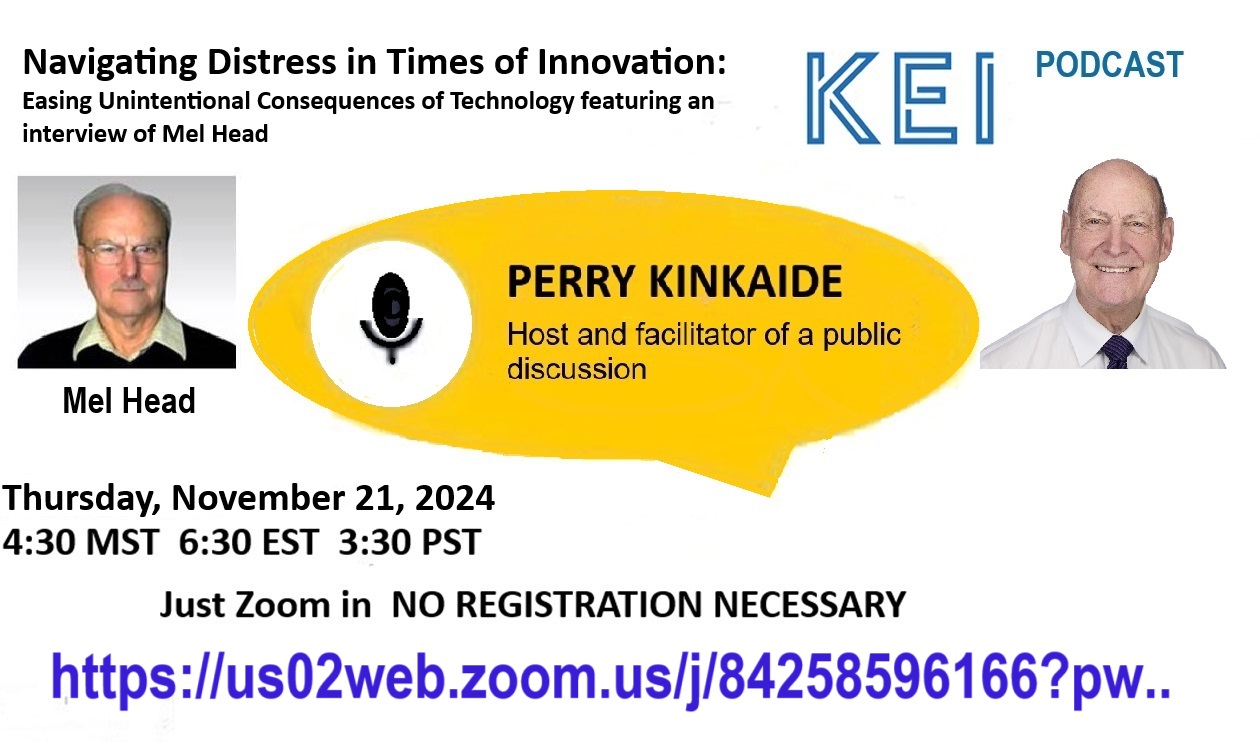Balancing the Risks and Benefits of Technological Progress
We need to embrace a more thoughtful approach to technological innovation to avoid unintended consequences and ensure sustainable progress
 The world is in turmoil, often appearing to be in a state of distress that touches nearly every aspect of society. As the rules and circumstances around us shift, we must find ways to navigate this turbulence while continuing to drive technological innovation and development. To truly improve our changing world, we need to minimize the possible unintended consequences of new technology introduction and ensure society benefits from genuine progress. This requires us to critically evaluate our actions, especially when introducing the "first iteration" of an innovative technology and avoid pushing forward without fully considering the potential impact. If we do not become more discerning, we risk repeating mistakes and missing the opportunity for better outcomes.
The world is in turmoil, often appearing to be in a state of distress that touches nearly every aspect of society. As the rules and circumstances around us shift, we must find ways to navigate this turbulence while continuing to drive technological innovation and development. To truly improve our changing world, we need to minimize the possible unintended consequences of new technology introduction and ensure society benefits from genuine progress. This requires us to critically evaluate our actions, especially when introducing the "first iteration" of an innovative technology and avoid pushing forward without fully considering the potential impact. If we do not become more discerning, we risk repeating mistakes and missing the opportunity for better outcomes.
 Mel Head is a retired chemical engineer with over 40 years of experience in real-time process control across the aluminum, oil refining, and software product service industries. His career spanned roles in software design and development, software product management, data acquisition services, and document control and management.Our world faces a perfect storm of challenges – economic crises, homelessness, mental health struggles, migration, lack of trust in institutions, geopolitical tensions, climate change, and rapid technological advancements. Technology, in particular, holds tremendous potential to improve lives, but rushing it to market without understanding its impact can lead to serious, unintended consequences.Change is continuous and not all decisions relating to technology are negative. For example, in pre-election campaign rhetoric,
Mel Head is a retired chemical engineer with over 40 years of experience in real-time process control across the aluminum, oil refining, and software product service industries. His career spanned roles in software design and development, software product management, data acquisition services, and document control and management.Our world faces a perfect storm of challenges – economic crises, homelessness, mental health struggles, migration, lack of trust in institutions, geopolitical tensions, climate change, and rapid technological advancements. Technology, in particular, holds tremendous potential to improve lives, but rushing it to market without understanding its impact can lead to serious, unintended consequences.Change is continuous and not all decisions relating to technology are negative. For example, in pre-election campaign rhetoric,
Change is continuous and not all decisions relating to technology are negative. For example, in pre-election campaign rhetoric, President-elect Donald Trump attacked the CHIPS and Science Act, suggesting that he may shift away from funding incentives in favour of protectionist measures to support the US semi-conductor industry. More recent views, as reported by Dylan Butts of CNBC, are consistent with leaving the Act in place although reserving some rights on how it is implemented. The Act provides incentives for chip-makers to set up manufacturing in the U.S., directs hundreds of billions of dollars toward supercharging domestic production of advanced technologies such as semiconductors—also known as microchips or chips.
Political motives or ideological pressures often push technologies forward or repeal them without considering long-term consequences. As my fellow Troy Media contributor, Perry Kinkaide, aptly put it, “Each new breakthrough, no matter how revolutionary, must be met with careful consideration of its potential impact on society and the environment.” Our future depends not just on what we create but on how responsibly we manage the legacy of those creations.
This is a call for a more thoughtful, measured approach to innovation. ... Continued below
Last week's podcast Global Chaos - Neo-liberalism A Prime Driver - Why Trump Won Big featuring an interview of Robert McGarvey can be viewed HERE. Please consider Subscribing to the KEI Network's YouTube channel at https://www.youtube.com/user/pkinkaie
While launching innovative technologies quickly has immediate appeal, it often wastes resources, creates setbacks, and can even cause harm. Real progress requires patience, planning, and foresight – not trial and error on a global scale.
Technological breakthroughs can drive incredible advances, but not everyone benefits equally or immediately. Parts of the world, not equipped to adopt modern technologies as quickly as wealthier countries, are often left behind. As global citizens, shouldn’t we aim to help lift these regions rather than focus solely on the next big breakthrough for those who already have it all?
Our dependence on technology in daily life is undeniable – imagine a world without electricity, clean water, healthcare, or education. Technology has transformed our lives in countless ways, but progress comes with responsibility. Too often, we rush forward with innovations before fully considering their potential downsides and become captivated with promising ideas that we have not clearly reviewed.
Foresight can prevent many of these issues. Six Sigma, a process improvement method developed by Motorola in the 1980s, offers a valuable example of applying structured thinking to reduce errors and anticipate challenges. One technique within Six Sigma is “Potential Problem Analysis,” which encourages organizations to identify what could go wrong with a project, estimate the likelihood and severity of each potential problem, and plan preventive actions and contingencies. We do not have to analyze every detail exhaustively, but this approach reminds us to pause and think carefully. Just a bit more knowledge – one additional insight – can make all the difference, helping us avoid costly mistakes or even failure.
Sometimes, conviction drives us more than clear thinking – a tendency that borders on blind ideology. While we do not need to investigate every idea exhaustively, superficial answers are not enough. Transformative inventions like plastics, nuclear power, the internet, and artificial intelligence have reshaped our world, yet each has brought “side effects” we are still managing today. Recognizing these early on is essential. We need progress, but we must also know when to pause, reassess, or even stop.
Why don’t we critically assess potential downsides before rushing to implement new ideas? Captivated by “good-sounding descriptions” of benefits, we may become content to manage the consequences later. However, while technologies, like nuclear power and plastics, bring undeniable benefits, their risks require careful management. Balancing these risks and benefits is critical as we continue to innovate.
Consider electric vehicles, wind turbines, and solar panels. These innovations drive sustainable energy forward, but they are not perfect and require realistic expectations. Not every region can rely on solar or wind power alone, especially without supporting infrastructure. Our pursuit of cleaner power must respect the environment while meeting the growing needs of society.
One thing noticeably lacking in today’s technological landscape is collaboration. Despite unprecedented communication tools, many companies focus on gaining market share rather than working together to create solutions. This race to be “first to market” often leads to overspending on ideas that we have not sufficiently reviewed, wasting resources on projects that stall or fail. Imagine the potential if industries shared knowledge and worked toward common goals.
Setting boundaries is also essential when introducing modern technologies, Ela Veresiu, a marketing professor, emphasizes that companies must allow consumers time to understand new tech, especially in complex fields like artificial intelligence. Launching innovations without public readiness invites distrust and misuse.
Maybe it is time we ask ourselves, “How do we get more adults in the room?”

Editor@KEInetwork.net
